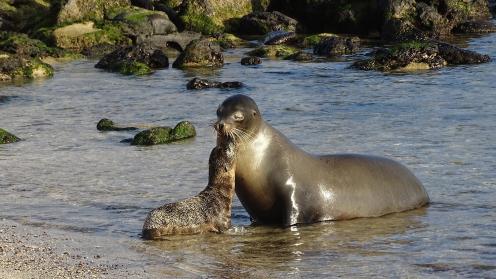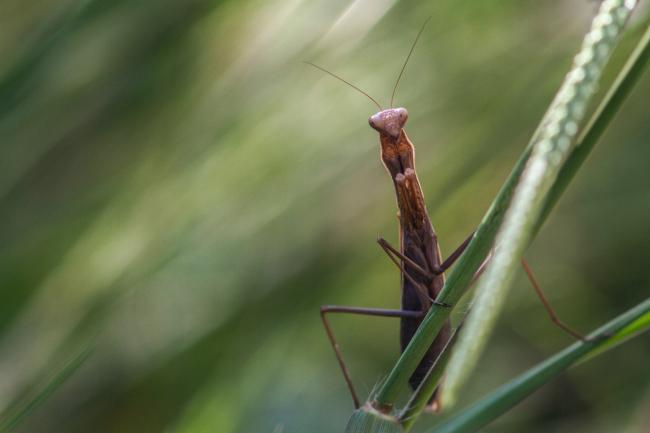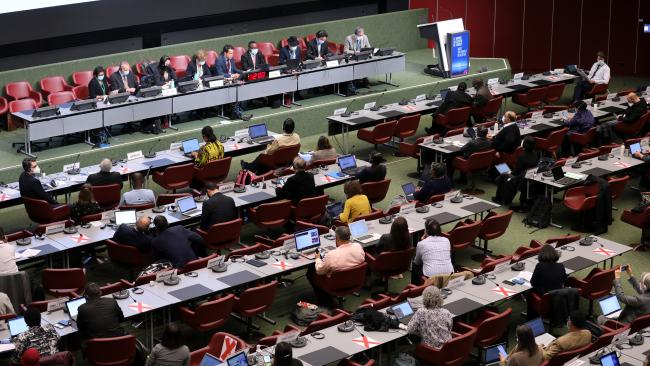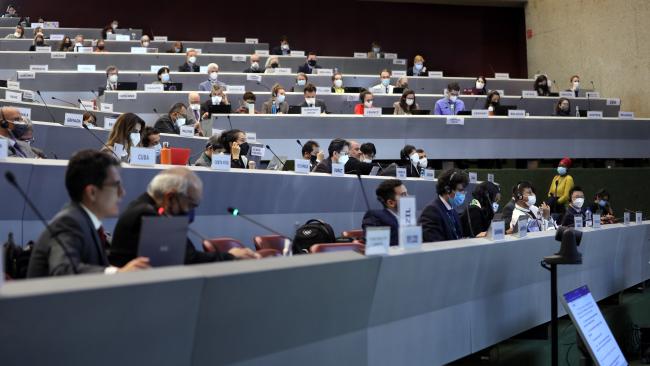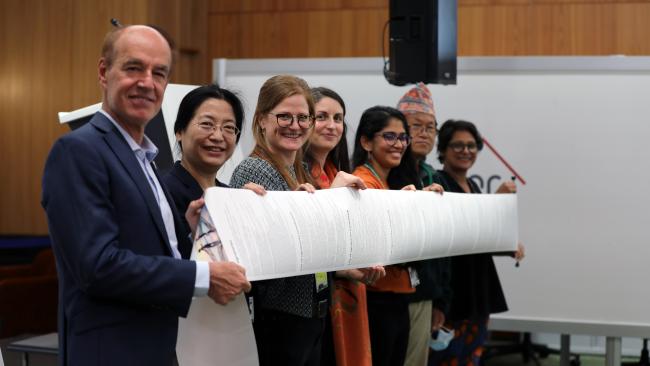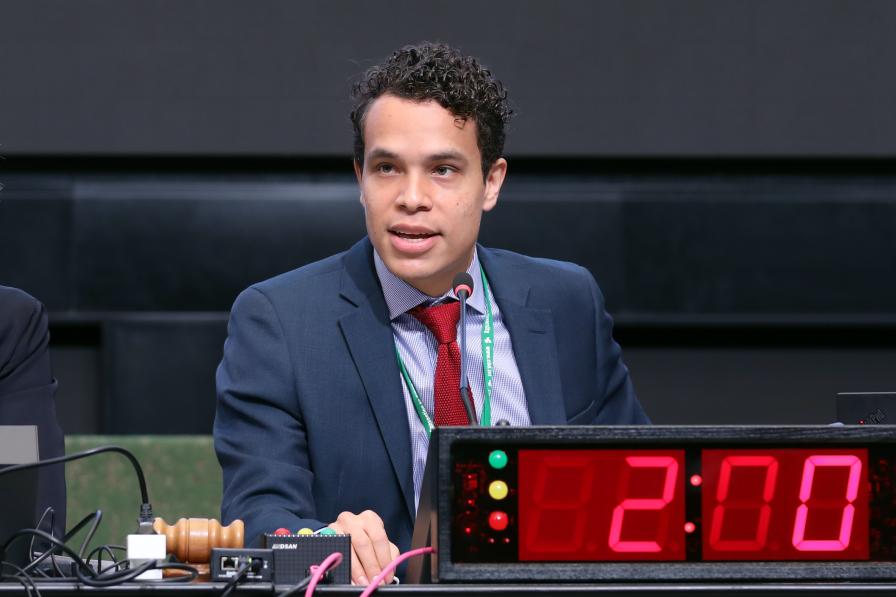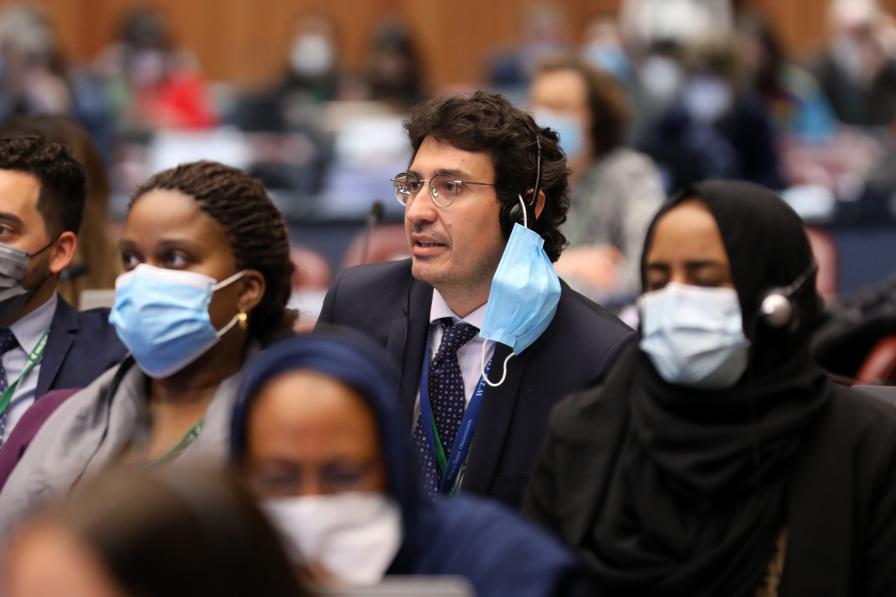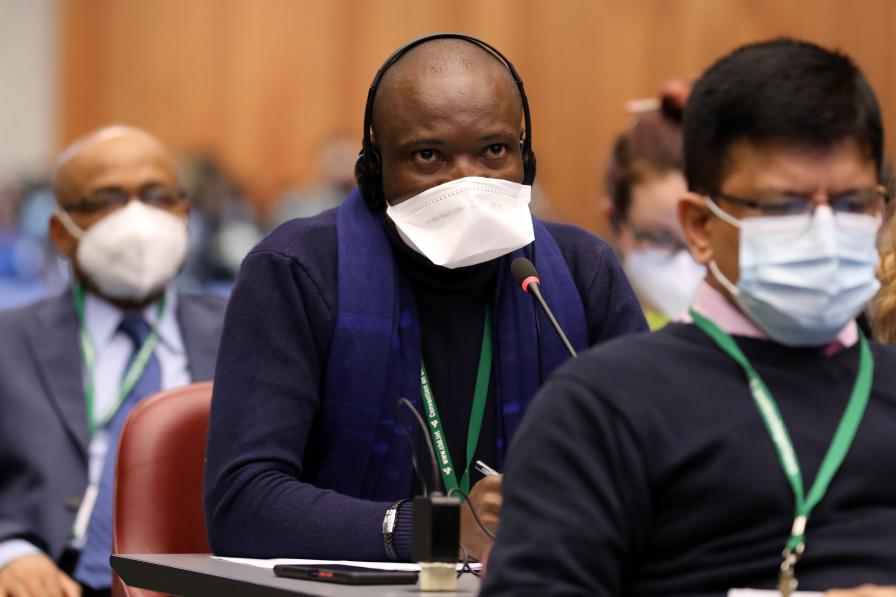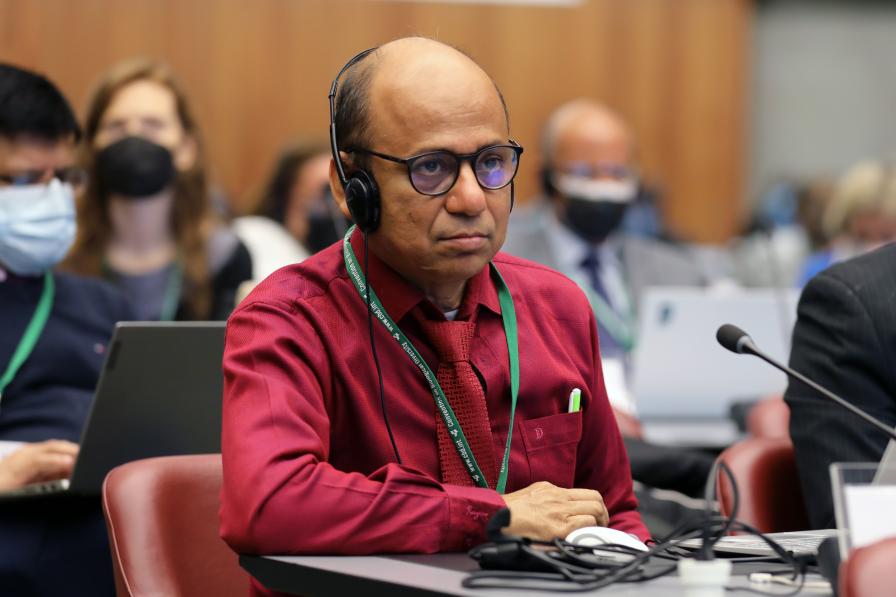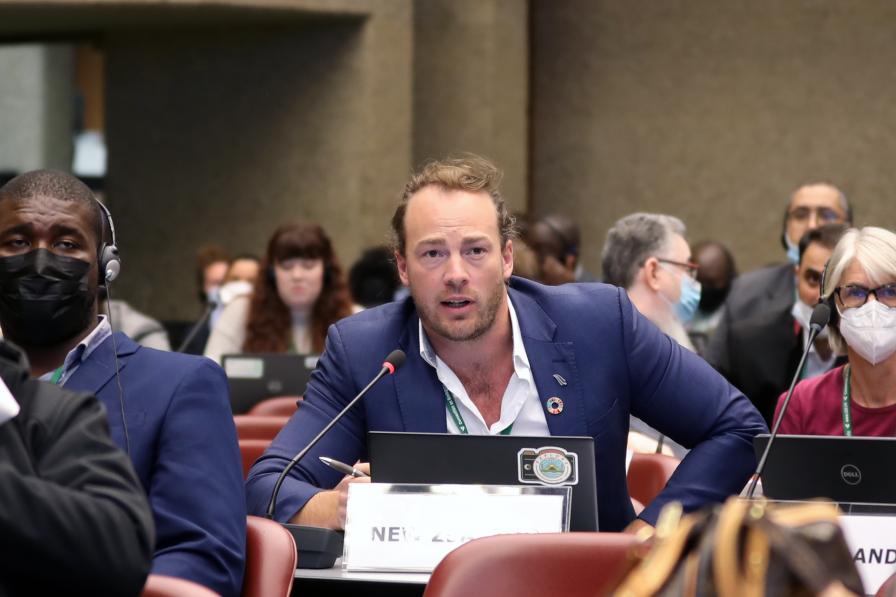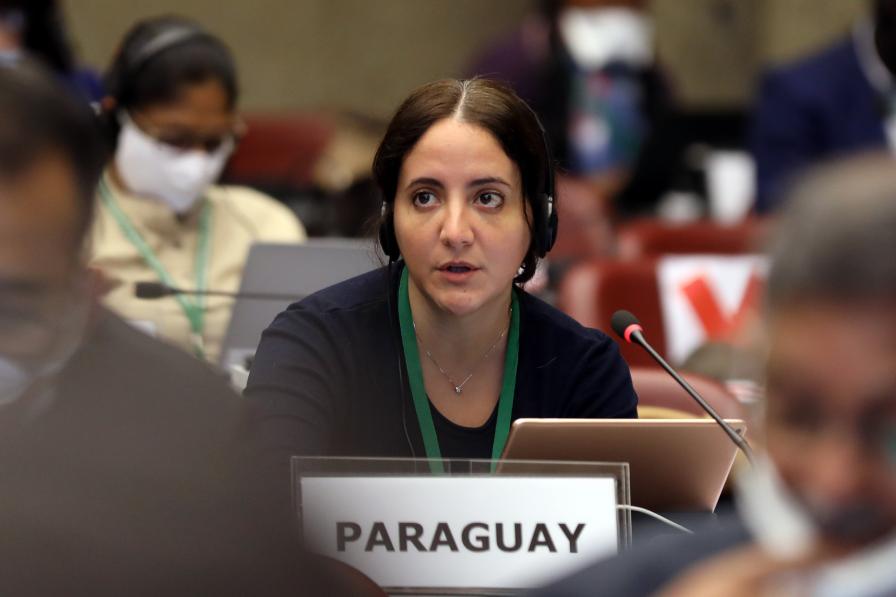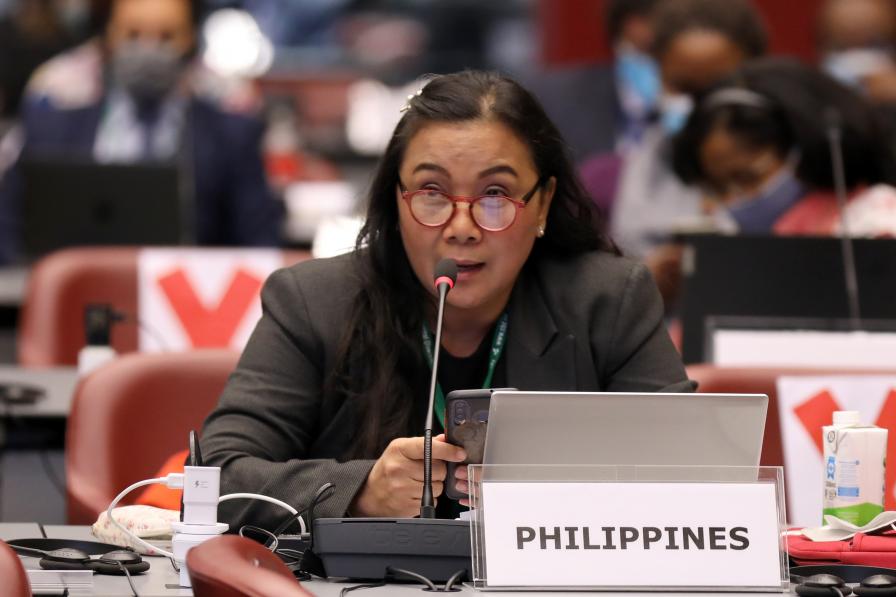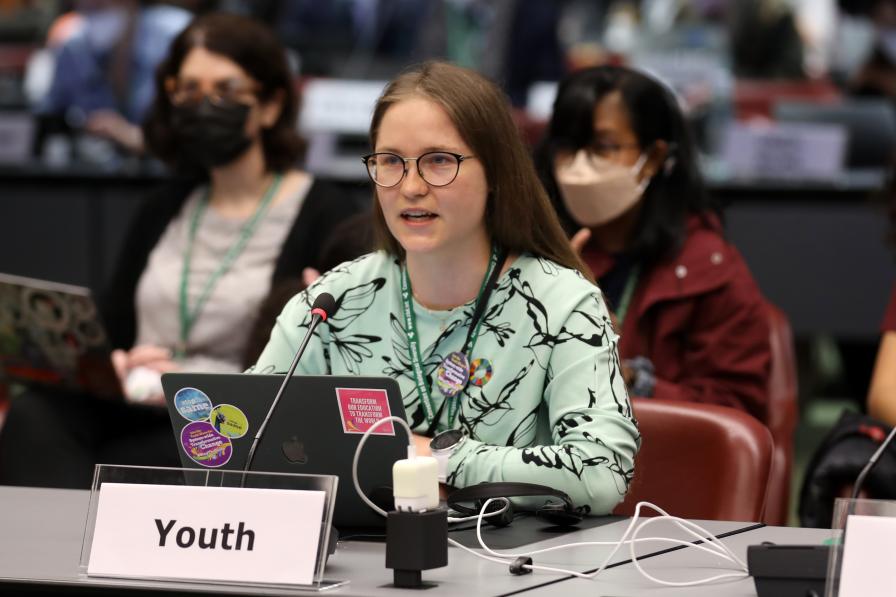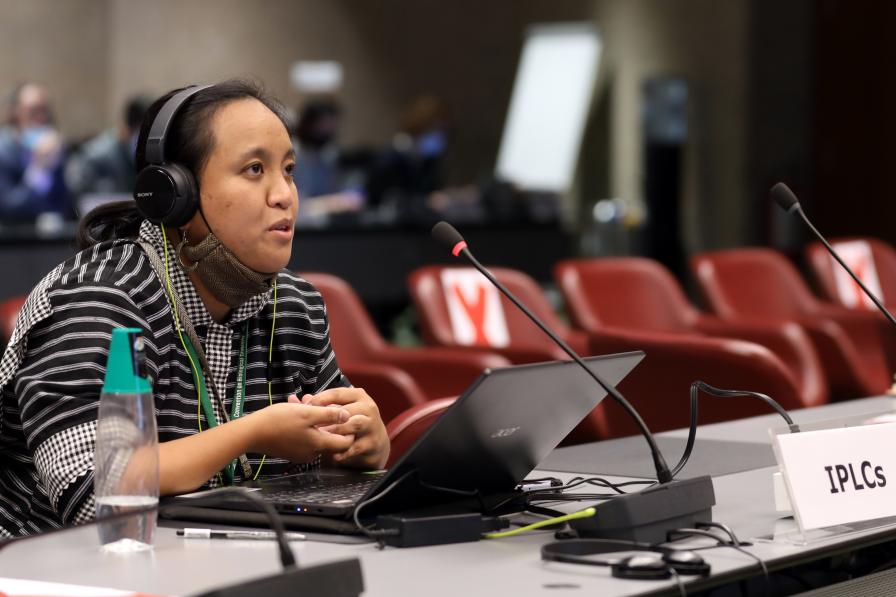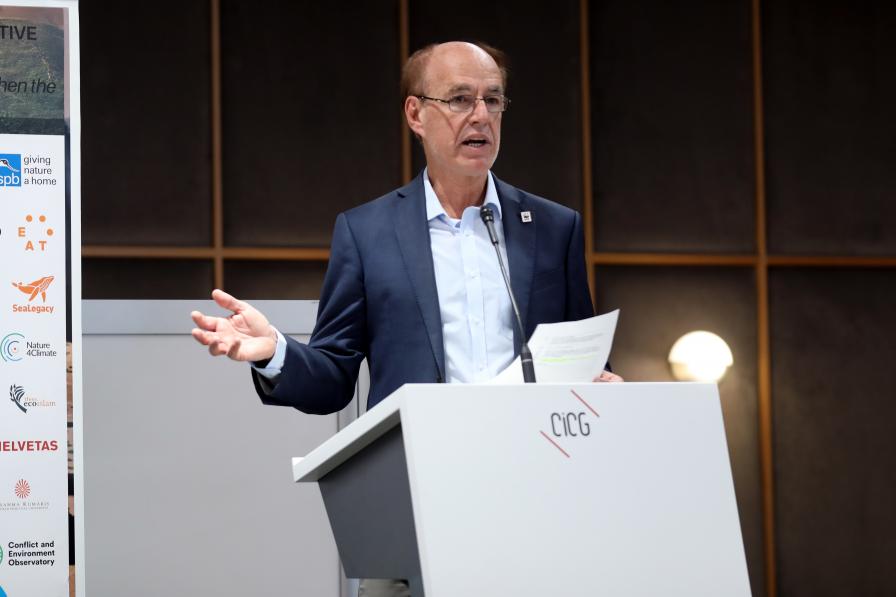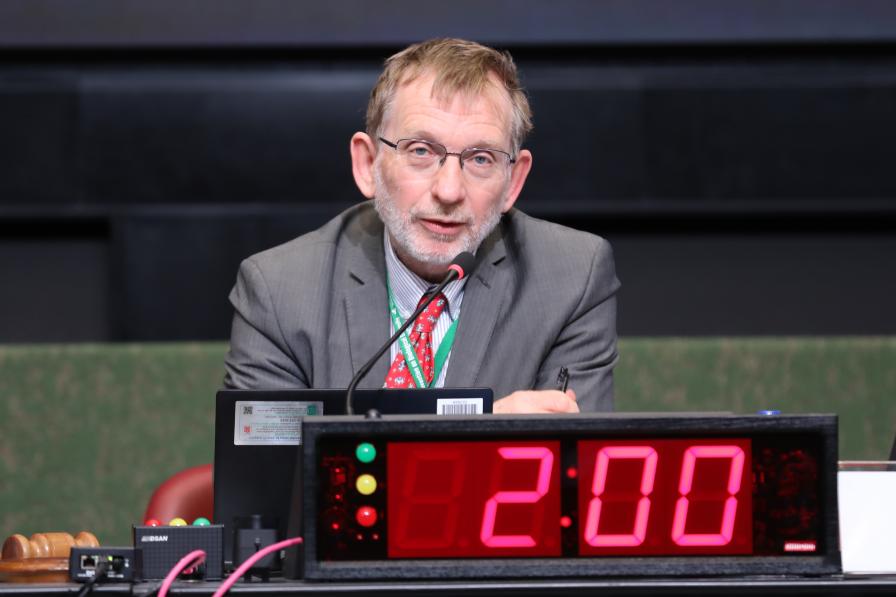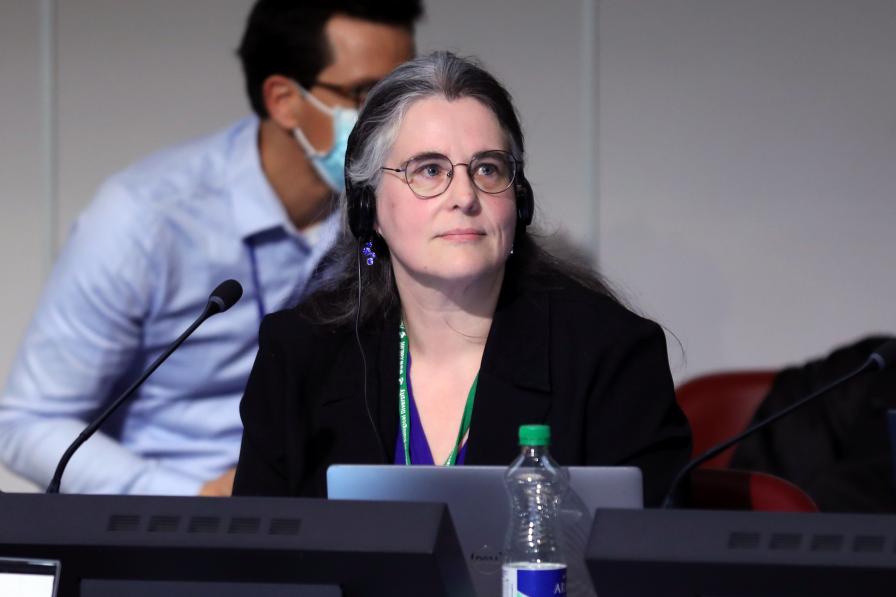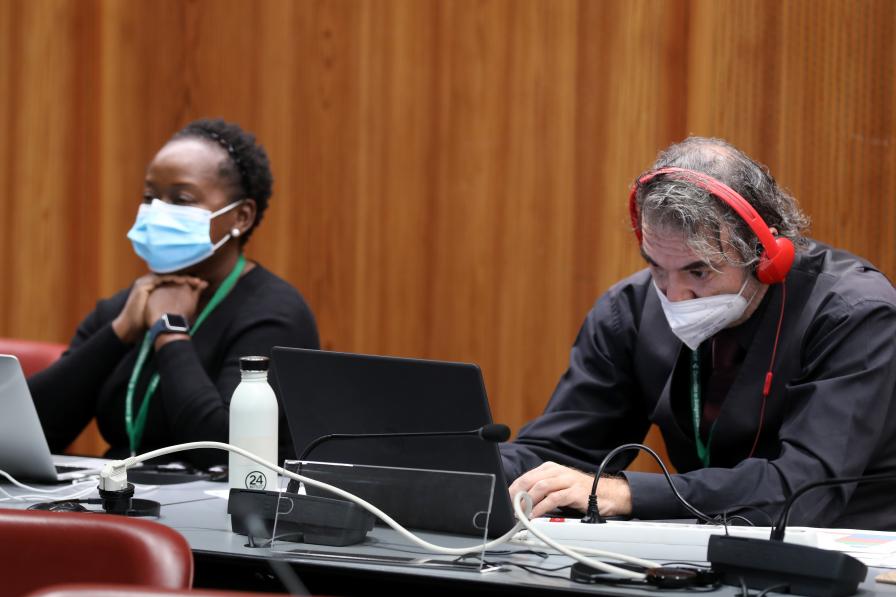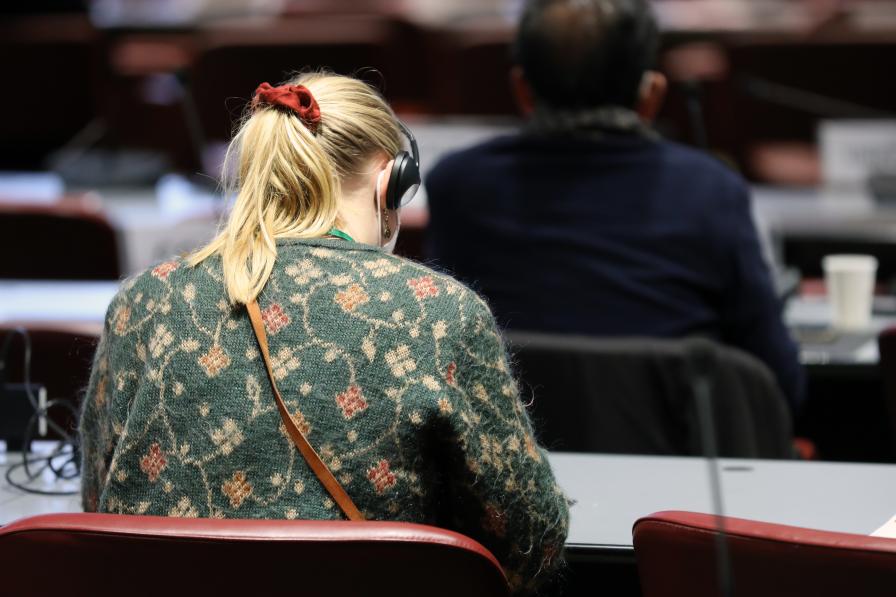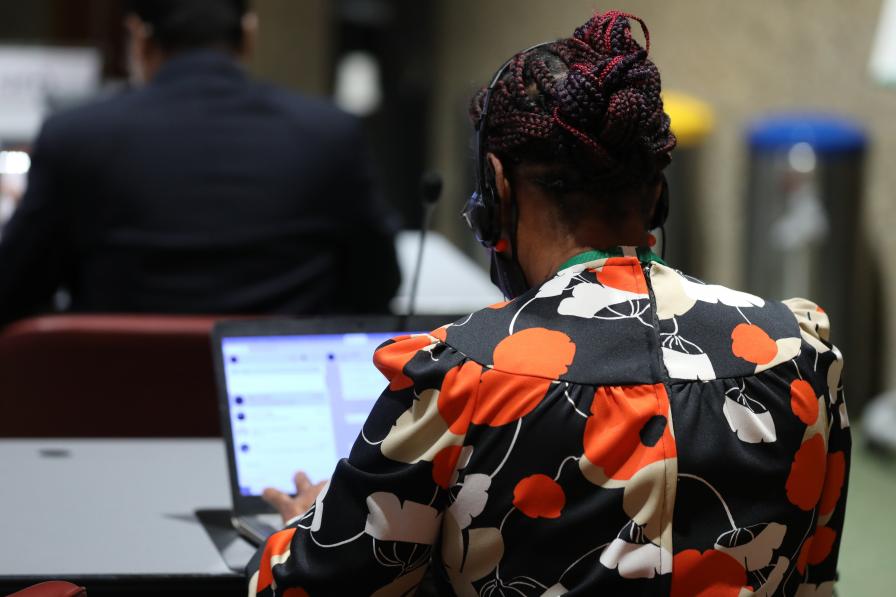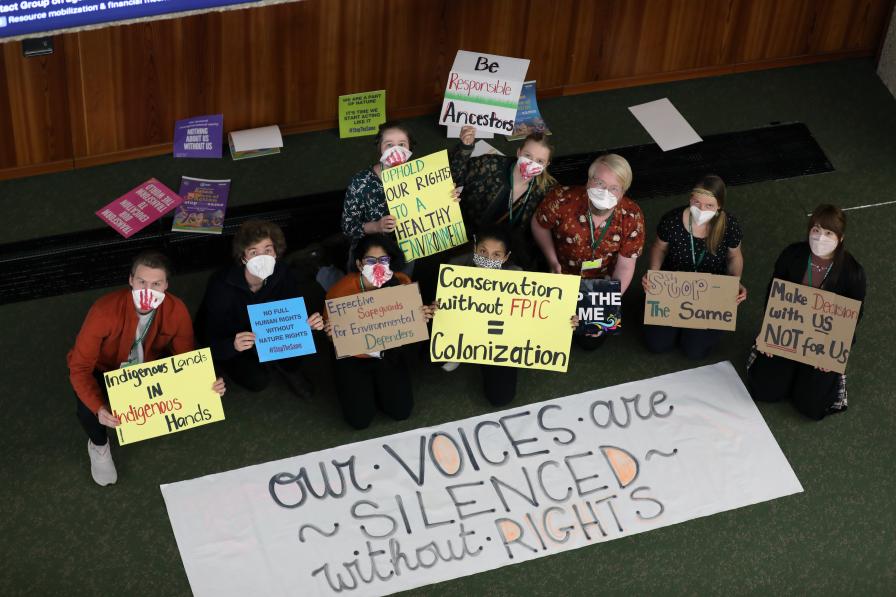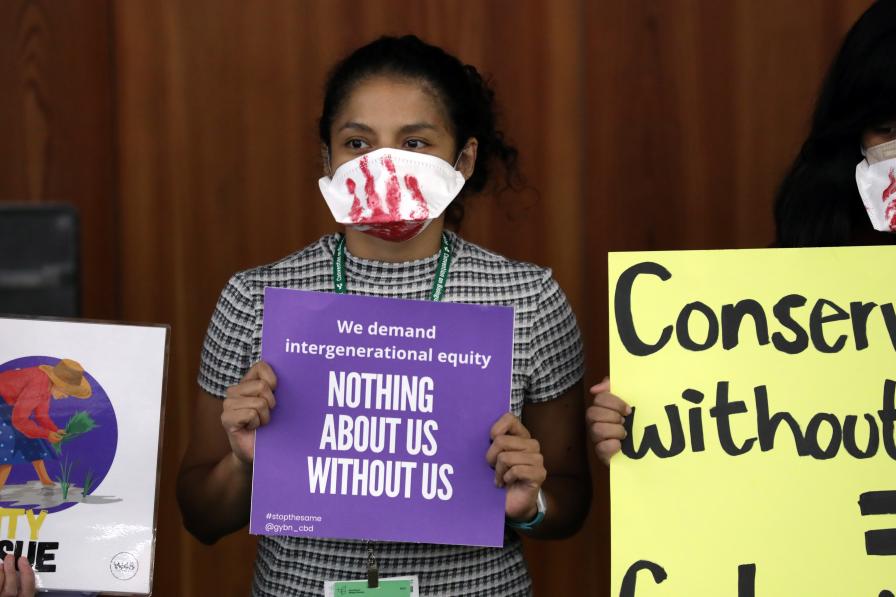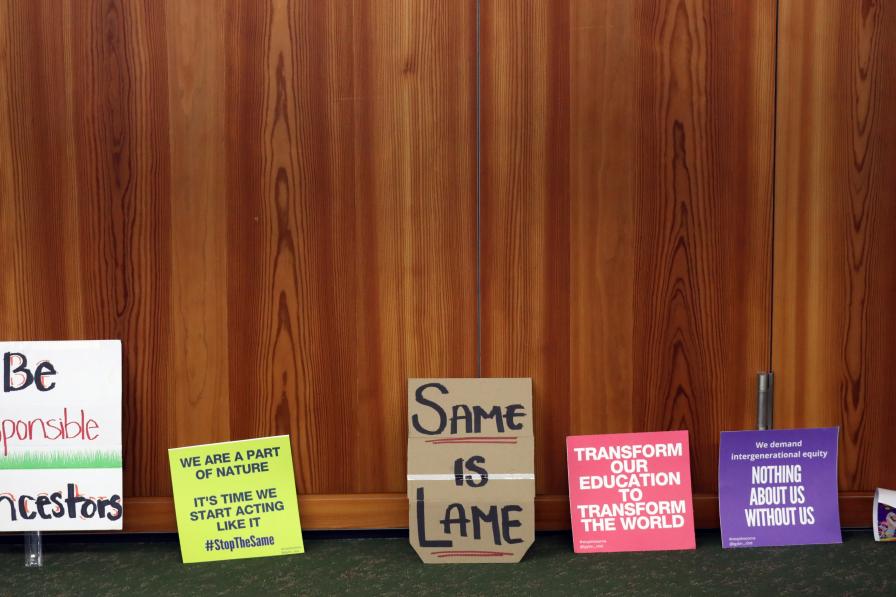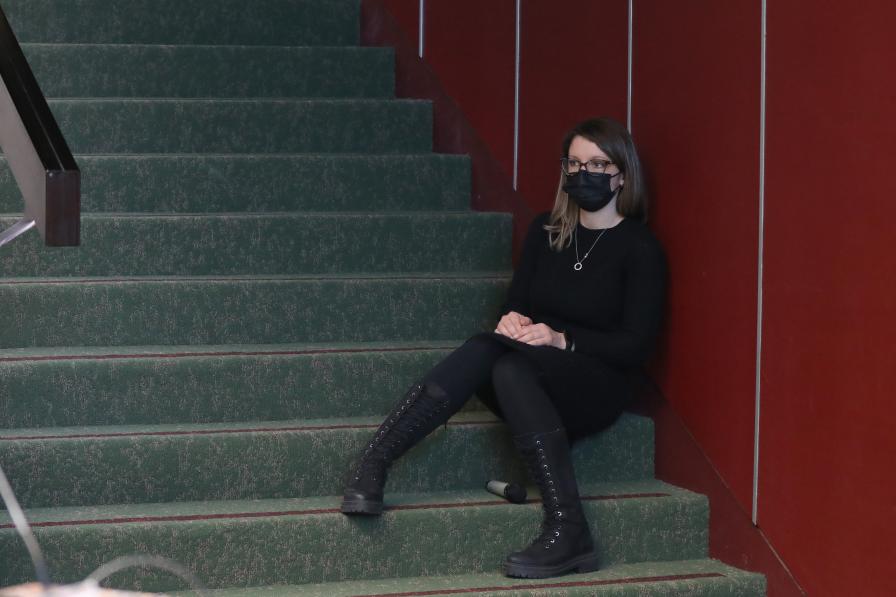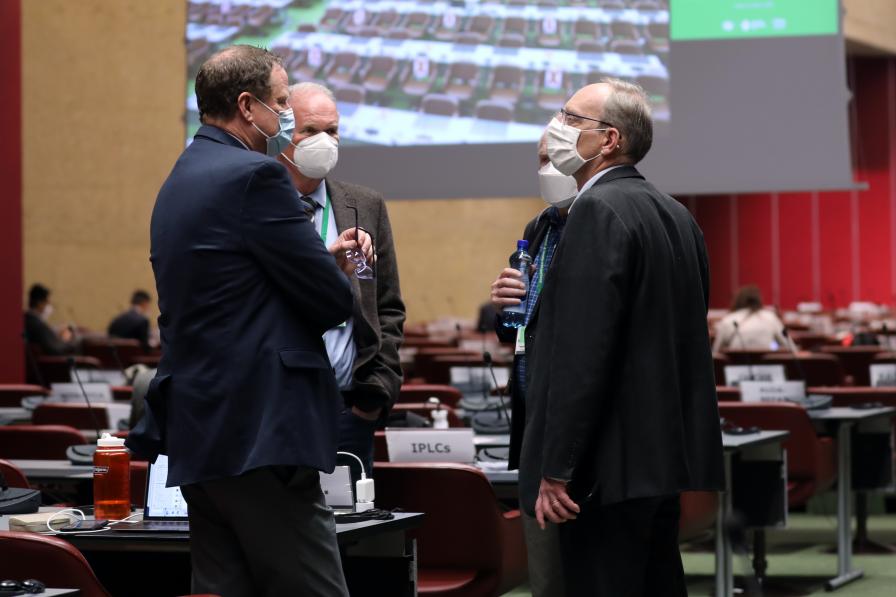The first signs of fatigue were evident at the Geneva Biodiversity Conference, which nevertheless continued its work at full speed with five contact group meetings throughout the day and into the late night.
To dive deeper, read the full Earth Negotiations Bulletin daily report.
In the morning, a contact group under the Working Group on the post-2020 global biodiversity framework (WG2020) addressed targets related to tools and solutions for implementation and mainstreaming. Delegates discussed the targets on: incentives harmful to biodiversity; resource mobilization; integrating biodiversity values; businesses’ dependencies and impacts on biodiversity; responsible choices, including regarding consumption and waste generation; ensuring that traditional knowledge and practices of Indigenous Peoples and Local Communities (IPLCs) guide biodiversity-related decision making; and ensuring equitable and effective participation in decision making related to biodiversity by IPLCs, women and girls, and youth. Following multiple suggestions and comments, Co-Lead Anne Teller noted views will be consolidated into a non-paper, which will be the basis for further negotiation.
The non-paper will be discussed when the contact group resumes on Tuesday, 22 March.
Contact groups established under the subsidiary bodies met in the afternoon and evening. A group under the Subsidiary Body on Scientific, Technical, and Technological Advice (SBSTTA) met in the afternoon and evening, focusing on proposed indicators and monitoring approaches for the post-2020 global biodiversity framework (GBF). Delegates discussed headline indicators focusing on whether they are: relevant to key elements of the target; technically feasible to use at the national level; technically feasible at the global level and possible to disaggregate; and ready to use now or in the near future.
A contact group under the Subsidiary Body on Implementation (SBI) met in the afternoon and evening to address resource mobilization and the financial mechanism. In the afternoon, parties addressed the draft recommendation on resource mobilization, making progress. Divergent positions remain, however, and discussions will continue. In the evening, the group addressed a non-paper on a draft recommendation concerning a draft four-year outcome-oriented framework of programme priorities for the eighth replenishment period of the Global Environment Facility (GEF-8).
Five side events took place at lunchtime, focusing on:
- communications in support of the GBF;
- Key Biodiversity Areas as areas that ensure quality and outcomes of GBF Goals and Targets;
- indicators to monitor contributions of IPLCs in the GBF;
- mainstreaming landscape perspectives into the GBF; and
- the essential contribution of biodiversity-related conventions to the GBF.
Also during the lunch break, a handover ceremony of the Non-State Actors’ Call to Action took place. Non-state actors from conservation, development, and humanitarian non-governmental organizations (NGOs); faith-based organizations; youth groups; Indigenous communities; the private sector; and artist coalitions urged parties to strengthen the GBF, calling for an equitable and nature-positive world.
Speakers underscored, inter alia, that:
- businesses should be actors of positive change, implementing the whole of the GBF;
- Indigenous Peoples’ knowledge and value systems are invaluable for biodiversity conservation, stressing that their customary practices and laws need to be respected, and their equal participation ensured;
- faith-based organizations bear key messages of interconnectedness and interdependence, underscoring the need to simultaneously address climate change, biodiversity loss, pollution, waste, and pandemics;
- intergenerational equity and rights-based approaches are essential for a whole-of-society transformative approach for living in harmony with nature;
- implementation is the cornerstone of the GBF once it is adopted; and
- world leaders understand the importance of biodiversity and the existential threat its loss entails.
To receive free coverage of global environmental events delivered to your inbox, subscribe to the ENB Update newsletter.
